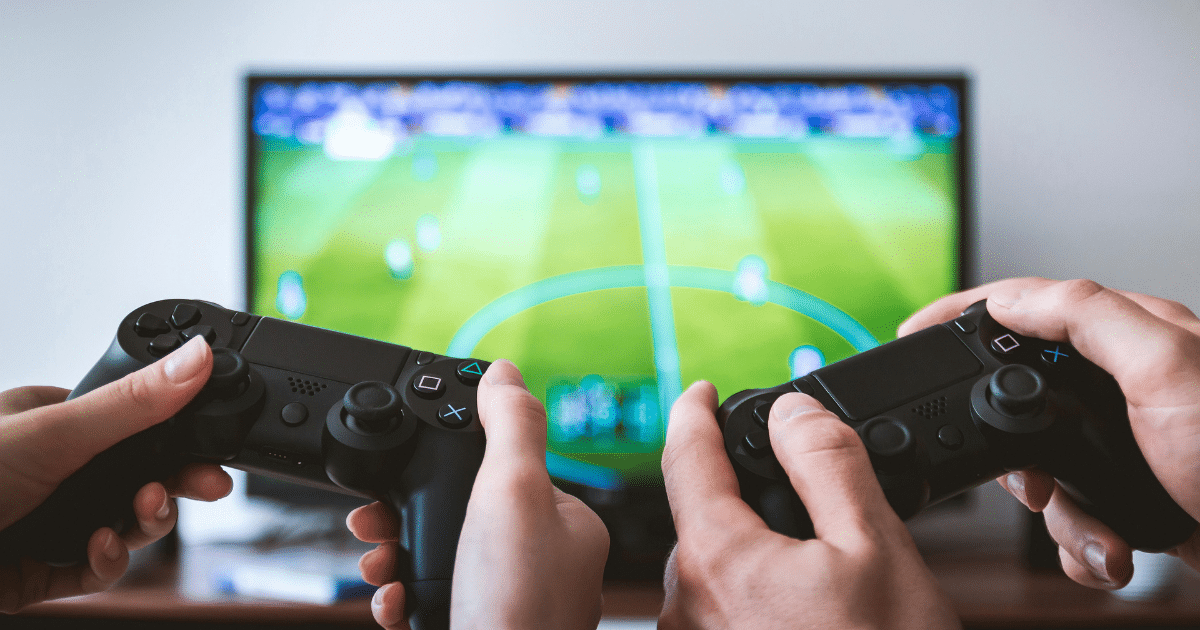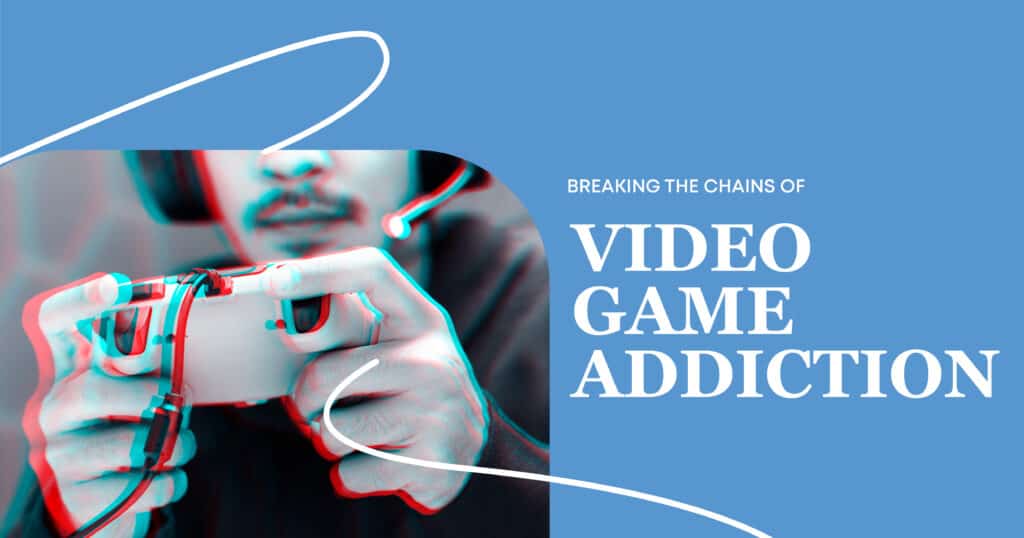Video game addiction is a growing concern, especially with the rise of online gaming and digital entertainment. While video games can offer entertainment and social connection, for some, they become a compulsive habit that interferes with daily life. Video game addiction or gaming disorder can lead to significant physical, mental, and emotional challenges, impacting relationships, school, and work.
In this article, we’ll explore the signs and symptoms of gaming addiction, the causes behind compulsive gaming, and strategies for overcoming video game dependency. If you or someone you know is struggling with excessive gaming, this article will help you understand the problem and offer actionable solutions for recovery.
Defining Video Game Addiction and Its Impact on Lives
Video game addiction is characterized by the excessive and compulsive use of video games, often at the expense of daily responsibilities. It is recognized as a mental health disorder by the World Health Organization (WHO) under the name gaming disorder. Teens and young adults are particularly susceptible to gaming addiction, especially with the immersive and interactive nature of online games.
Here’s an overview of gaming disorder:
- Compulsive gaming. Spending more time gaming than intended often leads to neglect of other activities.
- Escaping reality. Using video games as a way to cope with stress, anxiety, or emotional issues.
- Loss of control. The inability to stop playing, despite knowing it’s causing harm.
This addiction can disrupt daily life, making it essential for individuals and families to recognize and address it promptly.

The Signs and Symptoms of Gaming Disorder
The signs of video game addiction are not always obvious, but several key behaviors indicate a gaming disorder. Recognizing these symptoms early can help prevent further issues and encourage timely intervention.
Here are common gaming addiction symptoms to watch for:
- Loss of interest in other activities. Teenagers may stop engaging in hobbies or socializing due to their excessive gaming.
- Neglect of responsibilities. Poor academic performance, skipped meals, or neglecting personal hygiene are signs of an addiction.
- Irritability or anxiety. A teen may become upset or anxious when not playing video games, showing signs of withdrawal.
- Physical symptoms. Prolonged gaming can cause eye strain, poor posture, headaches, and disrupted sleep patterns.
Recognizing these gaming addiction symptoms early helps in initiating support and treatment for overcoming video game dependency.
Understanding the Causes Behind Compulsive Gaming
Compulsive gaming is not caused by a single factor but by a combination of psychological, social, and environmental influences. Understanding these underlying causes can provide insights into treatment and recovery.
Here are some of the leading causes behind online gaming addiction:
- Escaping emotional distress. Teens may turn to video games to escape real-life stressors such as family problems, bullying, or school pressure.
- Psychological factors. Anxiety, depression, or social issues can make gaming an attractive outlet, offering instant gratification and a sense of control.
- Peer pressure and social influence. The desire to fit in or the influence of friends can make teens more likely to develop a gaming disorder.
By addressing the root causes of video game addiction, teens and their families can better manage the situation and reduce the risk of recurrence.
The Effects of Online and Excessive Gaming on Mental Health
Excessive gaming can have profound effects on a teen’s mental health. The addiction often leads to emotional instability and mental health issues like anxiety and depression, which can spiral out of control if untreated.
Here’s a breakdown of the mental health effects of excessive gaming:
Anxiety, Depression, and Emotional Dysregulation in Gamers
- Escalating anxiety. Teens may develop heightened anxiety, both in-game and in real life, leading to stress in social interactions.
- Depression. The isolation from friends and family, along with neglecting responsibilities, can lead to depressive thoughts and feelings.
- Emotional dysregulation. Teens may have difficulty managing their emotions, often reacting inappropriately to stress or social situations.
Social Isolation and Its Psychological Consequences
- Reduced social interactions. Spending more time in the virtual world often reduces face-to-face interactions, leading to loneliness.
- Difficulty forming relationships. Teens with gaming disorder may struggle with maintaining healthy, supportive friendships due to a lack of real-world interaction.
- It can have a negative impact on self-esteem. Constantly comparing oneself to online personas or failing to succeed in gaming can lower self-worth.
The mental health impacts of gaming addiction can significantly affect both the individual and their relationships.
Strategies and Treatments for Overcoming Gaming Dependency
There are several effective ways to treat video game addiction and help teens regain control of their lives. These strategies often involve a mix of psychological therapies, behavioral techniques, and family support.
Here are some key strategies and treatments for overcoming gaming dependency:
- Cognitive Behavioral Therapy (CBT). Helps teens identify unhealthy gaming behaviors and replace them with more constructive activities.
- Behavioral therapy. Uses positive reinforcement to encourage teens to engage in non-gaming activities.
- Setting limits. Parents can set specific limits on gaming time to help their teens find balance.
- Activity substitution. Encourage teens to engage in sports, art, or other hobbies to replace the time spent gaming.
Using these strategies, teens can learn to manage gaming habits and develop healthier coping mechanisms.
The Role of Family and Friends in Supporting Recovery from Gaming Addiction
The support of family and friends is essential in helping a teen recover from video game addiction. A supportive network provides encouragement, structure, and motivation to help teens stick to their recovery goals.
Here’s how family and friends can help:
- Set boundaries. Parents should establish clear gaming time limits and enforce consequences for excessive gaming.
- Encourage healthy activities. Help your teen find activities that engage their interests outside of gaming, such as sports or creative hobbies.
- Provide emotional support. Show understanding and patience, offering a safe space for your teen to discuss their struggles with gaming addiction.
With consistent support from loved ones, teens can begin to break free from the cycle of addiction and regain a sense of balance in their lives.
Digital Addiction in the Modern World and Its Broader Implications
In today’s digital age, digital addiction is becoming a more widespread issue, affecting not just teens but adults as well. Video game addiction is a prominent aspect of this broader digital addiction, which includes excessive time spent on smartphones, social media, and other online platforms.
Key considerations regarding digital addiction:
- Access to digital devices. The rise of smartphones, tablets, and gaming consoles has made it easier for teens to become addicted.
- Impact on real-world skills. Excessive gaming time can interfere with learning practical life skills and developing real-world relationships.
- Long-term consequences. Untreated addiction can lead to chronic anxiety, depression, and difficulties in socializing, affecting future success.
Understanding the broader implications of digital addiction is crucial in managing gaming addiction and maintaining healthy digital habits.
Press Pause on Gaming Addiction—Hillside Horizon for Teens Is Here to Help
At Hillside Horizon for Teens, we understand the challenges of video game addiction and are here to provide the support needed for teens to regain control. Our therapeutic programs focus on helping teens overcome gaming addiction, offering a comprehensive approach to mental health and emotional well-being. Whether through individual therapy, group counseling, or family support, we guide teens toward a healthier, more balanced lifestyle.
If you or a loved one is struggling with video game addiction, contact Hillside Horizon for Teens today. Let us help you press pause on gaming addiction and start a new chapter in recovery.

FAQs
- What are the common signs and symptoms of gaming addiction that indicate a gaming disorder?
Common signs include excessive gaming, neglect of school or work, irritability, and withdrawal from social activities or relationships. These behaviors often lead to isolation, poor academic performance, and neglect of personal responsibilities. Over time, teens may experience emotional distress due to their gaming obsession, further affecting their well-being and mental health.
- How does compulsive gaming negatively affect mental health and daily life?
Compulsive gaming can lead to anxiety, depression, and social isolation, all of which worsen emotional health over time. Teens may experience decreased academic performance and struggle with friendships or family relationships, creating a sense of alienation. Additionally, excessive gaming disrupts sleep, contributing to fatigue, mood swings, and difficulty focusing in daily life.
- What are the leading causes behind online gaming addiction and video game dependency?
Common causes include emotional distress, social isolation, peer pressure, and a desire to escape real-life problems through gaming. Teens may turn to video games as a coping mechanism to handle anxiety, depression, or difficult family situations. Additionally, games’ immersive and interactive nature can create an addictive cycle, making it harder to stop.
- What strategies and treatments are available for overcoming excessive gaming and digital addiction?
Effective treatments include CBT, family therapy, and setting clear boundaries on gaming time to establish a balanced lifestyle. Encouraging teens to participate in non-digital activities such as sports, art, or socializing can reduce dependency on games. Support groups and professional counseling can also help teens develop healthier coping mechanisms for stress and anxiety.
- How can family and friends provide support in recovering from gaming addiction?
Families can set firm boundaries on gaming time and encourage alternative hobbies or activities to replace gaming habits. Emotional support is crucial, as it helps teens feel understood and supported during their recovery process. By creating a structured environment, families can promote healthier routines and encourage teens to stay on track with their goals.




